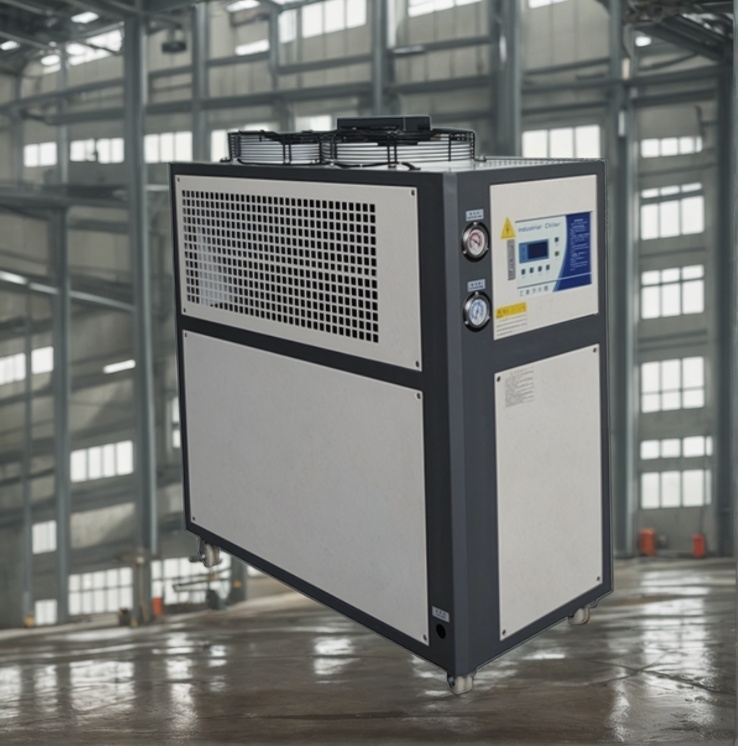In the landscape of modern manufacturing and processing, maintaining precise temperature control is not merely a preference; it is a fundamental pillar of quality, efficiency, and operational consistency. At the heart of this thermal management lies the Industrial Chiller, a sophisticated piece of equipment designed to remove heat from a liquid via a vapor-compression or absorption refrigeration cycle. These systems are the unsung heroes in countless facilities, ensuring that critical processes operate within their optimal temperature range, preventing equipment damage, and guaranteeing product integrity. From plastics manufacturing to medical imaging, the role of a reliable chiller is indispensable for a stable and productive environment.

The fundamental principle behind an industrial chiller is the science of thermodynamics, specifically the refrigeration cycle. This process begins at the evaporator, which acts as a heat exchanger. A liquid coolant, often a water or water/glycol mix, flows through the process to be cooled. As it passes through the evaporator, it transfers its heat to a liquid refrigerant inside the chiller. This heat transfer causes the refrigerant to boil and turn into a low-pressure gas. The now-chilled coolant is then circulated back to the process equipment, effectively removing heat and maintaining the desired temperature. This continuous loop is the essence of process cooling.
Once the refrigerant has vaporized, it moves to the compressor, the engine of the chiller system. The compressor’s job is to take the low-pressure refrigerant gas and pressurize it, which significantly increases its temperature. This hot, high-pressure gas is then pumped to the condenser. In the condenser, the heat is removed from the refrigerant and dissipated into the surrounding environment. As the heat is extracted, the refrigerant condenses back into a high-pressure liquid. This heat rejection is a critical step and is a key differentiator between the main types of chillers. Finally, the high-pressure liquid refrigerant passes through an expansion valve, which causes a sudden drop in pressure. This rapid expansion cools the refrigerant down, turning it into a low-pressure, cold liquid-vapor mixture, ready to enter the evaporator and repeat the cycle.
One of the most common and efficient types of chillers is the water cooled chiller. This system utilizes a secondary water source to facilitate heat rejection at the condenser. Instead of using ambient air, a water cooled chiller is connected to a cooling tower. The hot refrigerant gas in the condenser transfers its heat to the water circulating from the cooling tower. This heated water is then pumped to the cooling tower, where the heat is released into the atmosphere through evaporation. Because water has a higher heat capacity than air, these chillers are significantly more energy-efficient and consistent in their performance, regardless of fluctuating ambient air temperatures. They are ideal for medium to large-scale installations where efficiency and a stable cooling capacity are top priorities.
The applications for industrial chillers are incredibly diverse, spanning nearly every sector of the economy. In the plastics industry, they are used to cool the hot plastic in injection molding, blow molding, and extrusion processes, which reduces cycle times and improves part quality. The food and beverage industry relies on them to cool ingredients, control fermentation in breweries and wineries, and ensure safe processing in dairies and bakeries. In the medical field, chillers are crucial for cooling high-tech equipment like MRI machines, CT scanners, and linear accelerators, which generate immense heat. Other significant applications include laser cutting, metal finishing, chemical processing, and semiconductor manufacturing, where precise temperature control is paramount.
When the time comes to invest in a new cooling solution, a search for industrial chillers for sale will reveal a vast array of options, each with different specifications and features. Selecting the right unit is a critical decision that directly impacts operational costs, productivity, and reliability. It requires a thorough evaluation of the specific process requirements. The first and most important factor is determining the necessary cooling capacity, usually measured in tons or BTUs/hour. An undersized chiller will fail to maintain the target temperature, while an oversized one will lead to energy waste and increased wear and tear from short-cycling.
Beyond capacity, prospective buyers must consider the type of chiller that best suits their facility and application. The choice between an air-cooled model and a water cooled chiller depends on factors like available space, utility access, and climate. Air-cooled units are generally easier to install and maintain as they are self-contained, but their efficiency can suffer in hot environments. A water cooled chiller offers superior efficiency and a longer lifespan but requires the additional infrastructure of a cooling tower and a consistent water supply. Other key considerations include the required coolant temperature, flow rate, and pressure, as well as the unit’s overall energy efficiency rating (EER). Browsing through the various industrial chillers for sale with a clear understanding of these parameters is the surest way to make a wise investment.
In conclusion, the Industrial Chiller is far more than just a piece of machinery; it is an enabling technology that empowers industries to push the boundaries of innovation and production. By providing stable and precise temperature control, these systems safeguard valuable equipment, ensure consistent product quality, and enhance overall operational efficiency. Whether opting for a compact air-cooled unit or a large-scale, highly efficient water cooled chiller, the integration of a properly specified cooling system is a strategic investment that pays dividends in reliability, performance, and peace of mind. Making an informed choice from the many industrial chillers for sale ensures that your operations remain cool, controlled, and competitive.



评价
Clear filters目前还没有评价